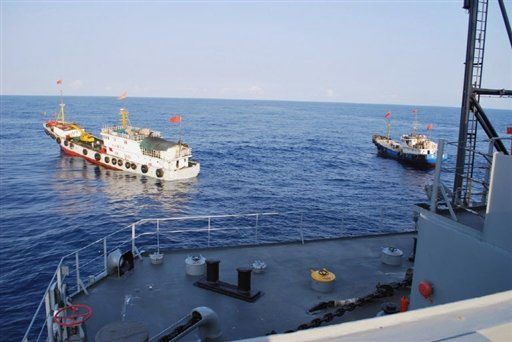
This week saw another confrontation between the US and China over Beijing’s growing naval power and what appears to be Washington’s attempts to retain control of the dominance to which it has grown accustomed in the East and South China Seas. On Sunday 2 Chinese fishing vessels reportedly “harassed” an American surveillance ship in the Yellow Sea. The incident was diffused without much conflict, although both sides have accused the other of breaking international laws and causing needless provocation. This is the fifth such incident off the coast of China involving American and Chinese ships in as little as 2 months. The US has been upping its attention to the region, sending destroyers to escort surveillance vessels at times. Meanwhile, China has showed visible displays of its own growing maritime prowess, such as during gigantic naval exercises in April, showcasing nuclear submarines for a celebration of the 60th anniversary of the naval arm of the People’s Liberation Army.
So what does all this mean?
The recent spats between the US and China cause much cause for concern. On one hand, China appears to be implementing an asymmetrical tactic by using both military and commercial ships in confronting foreign vessels. On the other hand, the United States has certainly increased its surveillance of China. This week the Pentagon announced that China’s increased military development was alarming. Adm. Michael Mullen, chairman of the U.S. Joint Chiefs of Staff stated: “They (China) are developing capabilities that are very maritime focused, maritime and air focused, and in many ways, very much focused on us. They seem very focused on the United States Navy and our bases that are in that part of the world.” There are also rumors that Chinese hackers have been stealing US military data, but there are also contrasting messages from Washington with President Obama calling for increased economic and military ties to Beijing. Finally, today, Obama and Chinese President Hu Jintao shared a phone call in which they pledged to for a “positive, cooperative and comprehensive relationship.” All this is evidence of much posturing, and also of Beijing trying to feel out its policy to a still-new Obama administration. While increased dialogue between China and the US is expected and necessary, one should also anticipate naval confrontations to continue.